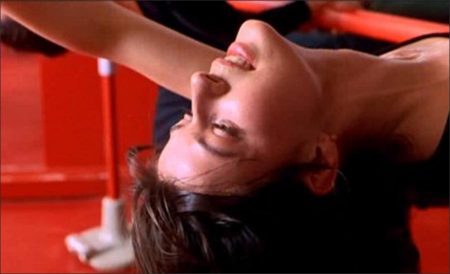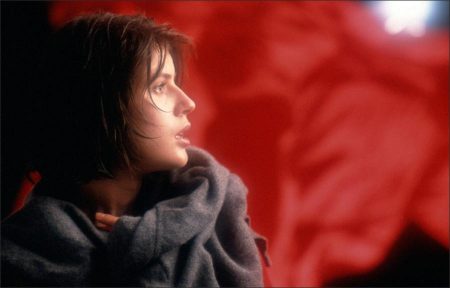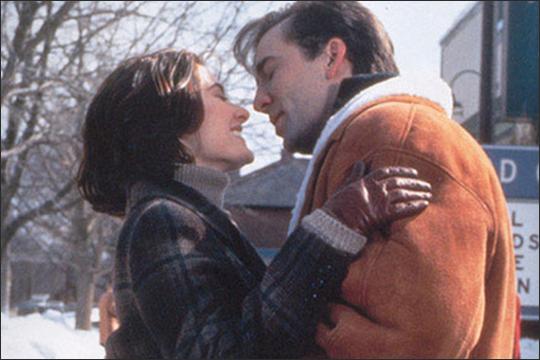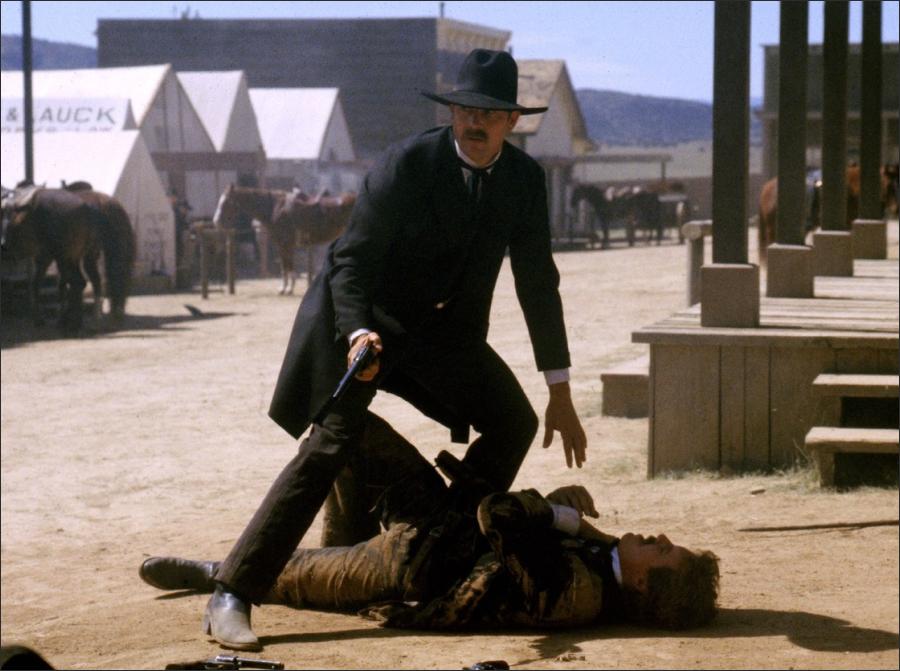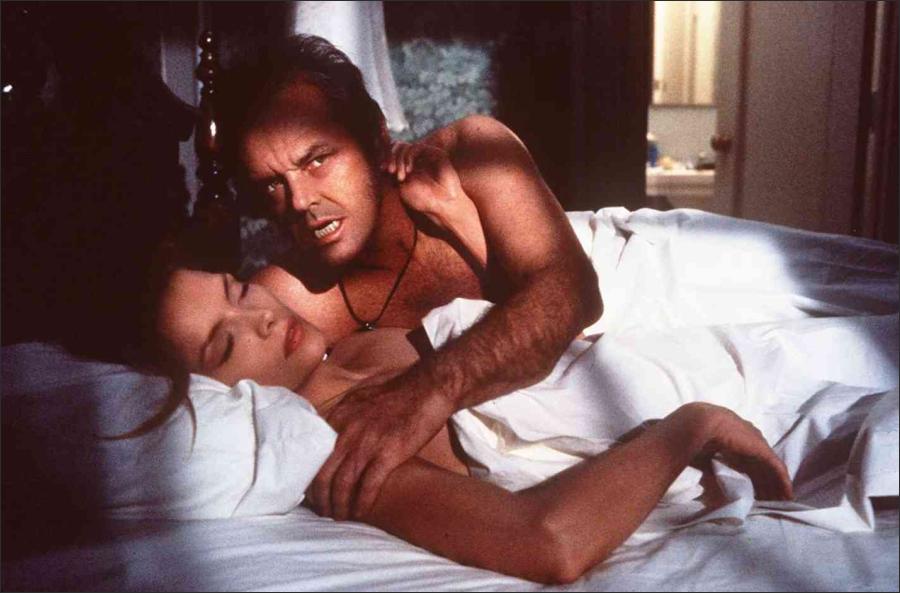Three Colors: Red movie storyline. University student Valentine Dussault (Irène Jacob) in Geneva is talking to her possessive boyfriend in London to prepare for a visit. During her part-time job as a model she poses for a chewing-gum campaign and the photo selected is one of her looking very sad.
While walking back home, Auguste, a student neighbour of Valentine’s, drops his textbooks and one book falls open at a particular chapter of the Criminal Code, which he notes. Driving back to her apartment, Valentine is distracted and accidentally hits a German Shepherd dog. She tracks down the owner, a retired judge, Joseph Kern (Jean-Louis Trintignant). He seems unconcerned. Valentine takes the dog, Rita, to a veterinarian, where she learns that she is pregnant. Later, money is delivered to her apartment from an unnamed sender.
Out for a walk the next day, Rita leads Valentine back to Kern’s house. He says she should keep the dog after confirming that he sent the money for the expenses. Valentine hears that Kern is eavesdropping on a male neighbour’s sexual telephone conversation with his male lover.
The judge challenges Valentine to tell the neighbour. She goes to do so but is horrified to see the man’s young daughter on the telephone extension, listening to the same conversation. Upon her return, Kern tells her that their actions of telling / not telling and spying / not spying make no difference to the eventual outcome of other people’s lives. Before leaving, Valentine also hears a conversation between Auguste and his girlfriend, Karin (Frederique Feder) neither of whom she has met. Auguste passes his exam to become a judge and credits his success to the dropped textbook.
That evening, Kern writes a series of letters to his neighbours and the court confessing his spying activities, and the community files a class action. Later, at the law courts, Kern sees Karin flirting with another man. When Valentine confronts him, Kern says it was her feeling of disgust that prompted him to confess. They discuss the nature of altruism and Valentine asks if he has ever loved or been loved. Kern evades the question and instead recounts a case in which he mistakenly acquitted a sailor, only to see him live a life free of crime.
Auguste has been unable to reach Karin by telephone since his graduation so he drives to her flat and climbs up the building. Through the window, he sees her having sex with another man and leaves, distraught. He takes his grief out on his dog and at one stages abandons him at a lamppost. On Karin’s personalised weather information service she is predicting that the weather around the UK will be perfect. She is happy about this as she is about to sail there herself soon (with her new boyfriend who owns a yacht).
Three Colors: Red (French: Trois couleurs : Rouge) is a 1994 romantic mystery film co-written, produced and directed by Polish filmmaker Krzysztof Kieślowski. It is the final installment of The Three Colors Trilogy, which examines the French Revolutionary ideals; it is preceded by Blue and White. Kieślowski had announced that this would be his final film, which proved true with the director’s sudden death in 1996. Red is about fraternity, which it examines by showing characters whose lives gradually become closely interconnected, with bonds forming between two characters who appear to have little in common.
Red was released to universal critical acclaim, and was nominated for three Academy Awards, including Best Director for Kieślowski. It was also selected as the Swiss entry for the Best Foreign Language Film at the 67th Academy Awards, but was disqualified for not being a majority-Swiss production.
Three Colors: Red (1994)
Directed by: Krzysztof Kieślowski
Starring: Irène Jacob, Jean-Louis Trintignant, Frédérique Feder, Jean-Pierre Lorit, Samuel Le Bihan, Marion Stalens, Bernard Escalon, Elzbieta Jasinska, Juliette Binoche, Zbigniew Zamachowski, Julie Delpy
Screenplay by: Krzysztof Kieślowski, Krzysztof Piesiewicz
Production Design by: Claude Lenoir
Cinematography by: Piotr Sobociński
Film Editing by: Jacques Witta
Costume Design by: Corinne Jorry
Set Decoration by: Pierre Agoston, Paola Andreani, Marc Babel
Music by: Zbigniew Preisner
MPAA Rating: R for a brief but strong sex scene.
Distributed by: Miramax Films
Release Date: September 14, 1994 (France), November 23, 1994 (United States)
Views: 537
